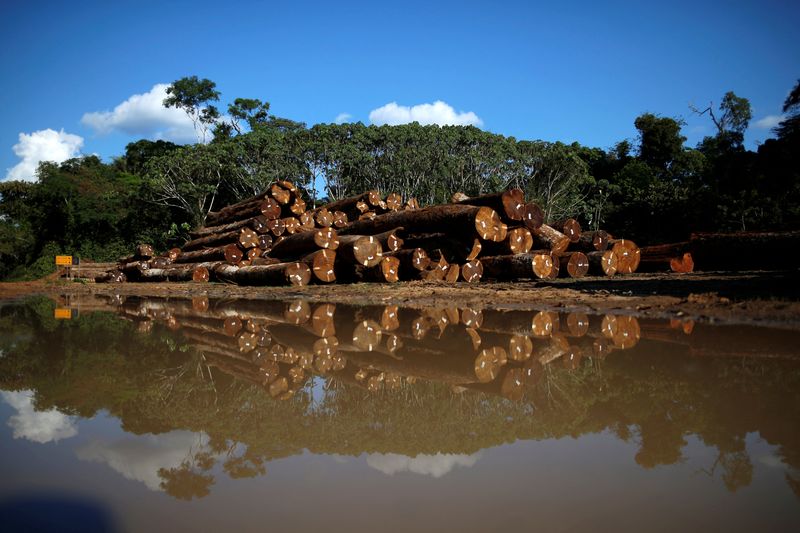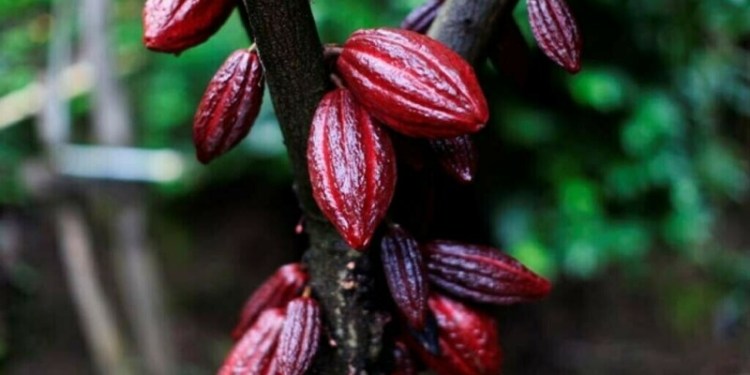5/5

© Reuters. FILE PHOTO: Piles of legal wood are seen in a wood company warehouse in the Amazon rainforest, inside Jamari National Forest Park in the County of Itapua do Oeste, Rondonia state, Brazil, September 28, 2021. REUTERS/Adriano Machado
2/5
By Jake Spring
BRASILIA (Reuters) – Brazilian environmental agents this week shut down schemes involving hundreds of companies the agents said were covering up illegal logging in the Amazon (NASDAQ:AMZN) rainforest, according to government documents reviewed by Reuters.
The operation conducted by the main federal environmental enforcement agency Ibama provides a rare glimpse into how illegally cut Amazon wood is inserted into legal timber supply chains, using shell companies and faking shipments.
The enforcement operation is one of the most complete ever conducted by the environmental agency, because it caught so many of the people hiding behind or doing business with the shell companies, one Ibama agent told Reuters.
Ibama identified more than 220 companies and 21 logging concessions involved in various schemes disguising the origin of illegal wood, according to the documents seen by Reuters.
The environmental agency will place embargoes on the companies this week to prevent them from selling wood and will hand out more than 50 million reais ($8.76 million) in fines, the documents said.
Ibama has also passed on the findings to public prosecutors and police for further criminal investigation, the documents said.
Ibama did not respond to a request for comment.
The agency can issue administrative penalties like fines and embargoes but cannot make arrests or issue criminal charges. The companies and people involved can appeal the decisions with Ibama.
Under President Jair Bolsonaro, Brazil’s Amazon deforestation in 2021 surged to the highest level in 15 years, according to official government statistics.
Bolsonaro has rolled back environmental protections and sought to introduce more mining and farming to the Amazon, saying it is needed to alleviate poverty.
Brazil permits legal logging, handing out a limited number of concessions that allow only a proportion of trees to be cut in a specific area, and sets quotas capping the harvest.
Those quotas are given out as credits that then accompany the wood as it is sold and resold, certifying its legal origins until it is made into a “finished product” like furniture or flooring.
But under the schemes, companies were selling the credits without the wood, the documents said.
Buyers would then attach the woodless credits to illegally sourced wood with origins such as protected nature reserves or tribal lands.
In some cases, the companies involved were shell companies that only existed on paper in order to funnel the credits, which could change hands many times before being used, the documents said.
The scheme involved more than 102,000 cubic meters of illegally cut wood from Para, Rondonia and Mato Grosso states. That amount represents the harvest of about 97 square kilometers of forest, an area larger than Manhattan, which still pales in comparison to more than 13,000 square kilometers of deforestation officially recorded in the 12 months through July.
“That’s a drop in the ocean,” said Raoni Rajao, a land use expert at the Federal University of Minas Gerais, when asked about the discovery.
The Ibama operation provides an example of the most common way which illegal loggers sell their wood into the legal system, according to Rajao.
“It’s certainly very widespread,” he said.
Most of the illegally harvested wood was sold into Brazil’s domestic market for a variety of uses, said the Ibama agent, on condition of anonymity.
The final manufacturer or consumer generally has no way of knowing the wood is illegal as the timber appears to be legitimate in the government system, the agent said. Therefore, they cannot be held liable, the person said.
Selective logging to extract valuable timber is often the first step in deforestation, with the remaining forest then burned to clear land for agriculture.
($1 = 5.7052 reais)
Source: Investing.com



























